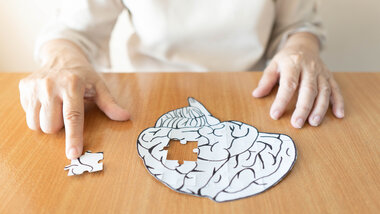30 November 2022
KHP Neurosciences rounds up all the key facts about strokes.
A stroke is a serious life-threatening medical condition that happens when the blood supply to part of the brain is cut off.
Stroke is a time sensitive condition which means that any hesitancy and delay in getting treatment kills brain cells. Around 1.9 million nerve cells in the brain are lost every minute that a stroke is left untreated, which can result in slurred speech and paralysis. If left untreated, a stroke can result in permanent disability or death.
If you suspect that you or someone else is having a stroke, act FAST:
Face – has their face fallen on one side? Can they smile?
Arms – can they raise both their arms and keep them there?
Speech – is their speech slurred?
Time – time to call 999
Some other signs of stroke or mini stroke can include:
- sudden loss of vision or blurred vision in one or both eyes;
- sudden weakness or numbness on one side of your body (including in your leg);
- sudden memory loss or confusion;
- sudden dizziness, unsteadiness, or a sudden fall, especially with any of the other signs.
There are around 100,000 strokes a year in the UK – at least one stroke every five minutes, sadly causing about 34,000 deaths per year. Black people are twice as likely to have a stroke than white people. On average, people of black African, black Caribbean, and South Asian descent in the UK have strokes at an earlier age.
Treatment depends on the type of stroke you have, including which part of the brain was affected and what caused it. Strokes are usually treated with medicine. This includes medicines to prevent and dissolve blood clots, reduce blood pressure and reduce cholesterol levels.
In some cases, procedures may be required to remove blood clots – a process called mechanical thrombectomy. Surgery may also be needed to treat brain swelling and reduce the risk of further bleeding if this was the cause of the stroke.
People who survive a stroke are often left with long-term problems caused by injury to their brain. Some people need a long period of rehabilitation before they can recover their former independence, while many never fully recover and need ongoing support after their stroke.
At King’s Health Partners Neurosciences, we have established integrated services in stroke and neurorehabilitation which address both mind and body.
We are also home to two of London’s eight Hyper Acute Stroke Units (HASUs), one at King’s College Hospital and one at Princess Royal University Hospital. Both sites also have Stroke Units (SUs), which are part of a network of 20 sites across London offering rehabilitation for stroke patients.
We also conduct world-leading clinical research in epilepsy, headache, and stroke. In addition we have an extensive programme of pre-clinical research in neurodevelopment, neurodegeneration, and neuroregeneration after injury, and a large portfolio of commercial research.
King’s Health Partners Neurosciences has an ambitious vision to use our collective clinical, research, and educational expertise to deliver world-class patient care and research.





